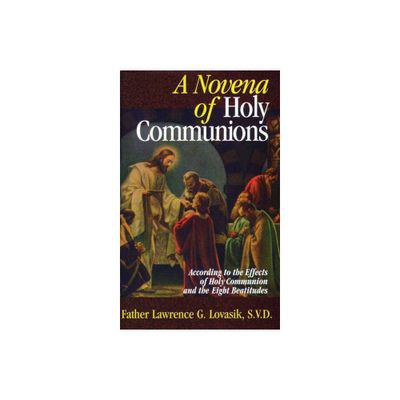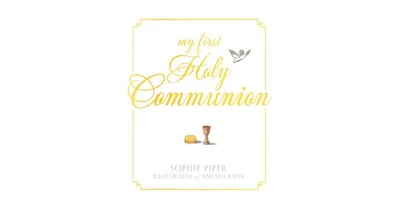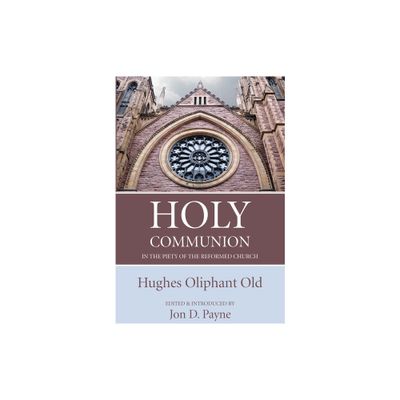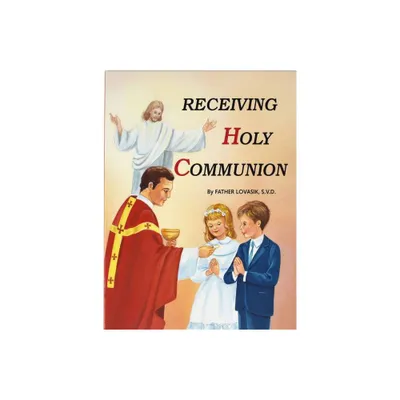Home
Respecting the Body and Blood of Lord: When Holy Communion Should Be Denied
Loading Inventory...
Barnes and Noble
Respecting the Body and Blood of Lord: When Holy Communion Should Be Denied
Current price: $14.95


Barnes and Noble
Respecting the Body and Blood of Lord: When Holy Communion Should Be Denied
Current price: $14.95
Loading Inventory...
Size: Paperback
*Product Information may vary - to confirm product availability, pricing, and additional information please contact Barnes and Noble
His Eminence Raymond Leo Cardinal Burke unpacks in a clear, concise way the history and significance of the Catholic Church’s long-held teaching regarding who is worthy to receive Holy Communion — and who is not. Referencing writings of Church Fathers, Pope St. John Paul II, numerous saints, the
Catechism of the Catholic Church
, and Scripture itself, Cardinal Burke cogently expresses the continuity of what Pope Benedict XVI referred to as a “perennial Church teaching.”
In an age in which misguided pluralism has caused doctrinal relativism to run rampant, Cardinal Burke explains Canon Law 915, which reads: “The excommunicated and interdicted after the imposition or declaration of the penalty and others who remain obstinately in manifestly grievous sin are not to be admitted to Holy Communion.”
Previously published for the clergy, this updated version includes commentary written for the laity by Catholic Action for Faith and Family president Thomas McKenna to help explain such points as:
How the Church responded to historical scenarios of scandal, heresy, and unbelief (and their relevance today!)
Circumstances that call for a person to refrain from receiving Holy Communion
When a communicant should be denied Holy Communion (and by whom)
How this applies to politicians who continue to publicly support grave sins
What six saints said about properly receiving Holy Communion
The insidious fruits of scandalous behavior and the “objective harm” that results
Each chapter clearly spells out the key aspects, applications, and personal points to ponder (reality check!) on how to receive Holy Communion worthily and on the reverence Catholics are called to show toward the Blessed Sacrament. This timely volume also addresses how many Catholics in North America view the imposition of limits on the reception of Holy Communion due to prevailing notions regarding scandal and the rejection of moral norms.
You will encounter many pastoral examples of how the Church defended the sanctity of the Eucharist and the rules for its reception from the earliest centuries — including a powerful story involving St. Francis of Assisi. And you will be inspired by how the Church’s teaching on the proper reception of Holy Communion is an act of pastoral charity designed for the good of the faithful, for our union with one another, and for the salvation of souls.
Catechism of the Catholic Church
, and Scripture itself, Cardinal Burke cogently expresses the continuity of what Pope Benedict XVI referred to as a “perennial Church teaching.”
In an age in which misguided pluralism has caused doctrinal relativism to run rampant, Cardinal Burke explains Canon Law 915, which reads: “The excommunicated and interdicted after the imposition or declaration of the penalty and others who remain obstinately in manifestly grievous sin are not to be admitted to Holy Communion.”
Previously published for the clergy, this updated version includes commentary written for the laity by Catholic Action for Faith and Family president Thomas McKenna to help explain such points as:
How the Church responded to historical scenarios of scandal, heresy, and unbelief (and their relevance today!)
Circumstances that call for a person to refrain from receiving Holy Communion
When a communicant should be denied Holy Communion (and by whom)
How this applies to politicians who continue to publicly support grave sins
What six saints said about properly receiving Holy Communion
The insidious fruits of scandalous behavior and the “objective harm” that results
Each chapter clearly spells out the key aspects, applications, and personal points to ponder (reality check!) on how to receive Holy Communion worthily and on the reverence Catholics are called to show toward the Blessed Sacrament. This timely volume also addresses how many Catholics in North America view the imposition of limits on the reception of Holy Communion due to prevailing notions regarding scandal and the rejection of moral norms.
You will encounter many pastoral examples of how the Church defended the sanctity of the Eucharist and the rules for its reception from the earliest centuries — including a powerful story involving St. Francis of Assisi. And you will be inspired by how the Church’s teaching on the proper reception of Holy Communion is an act of pastoral charity designed for the good of the faithful, for our union with one another, and for the salvation of souls.


















